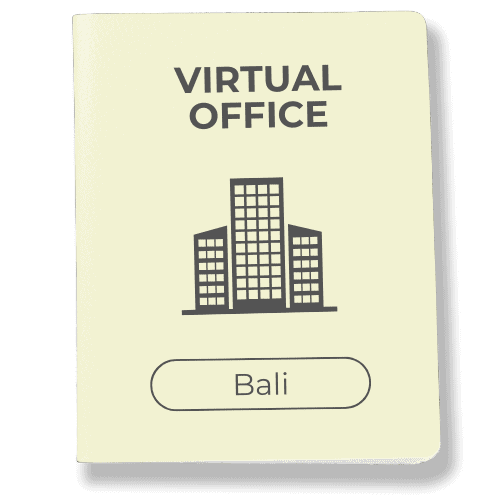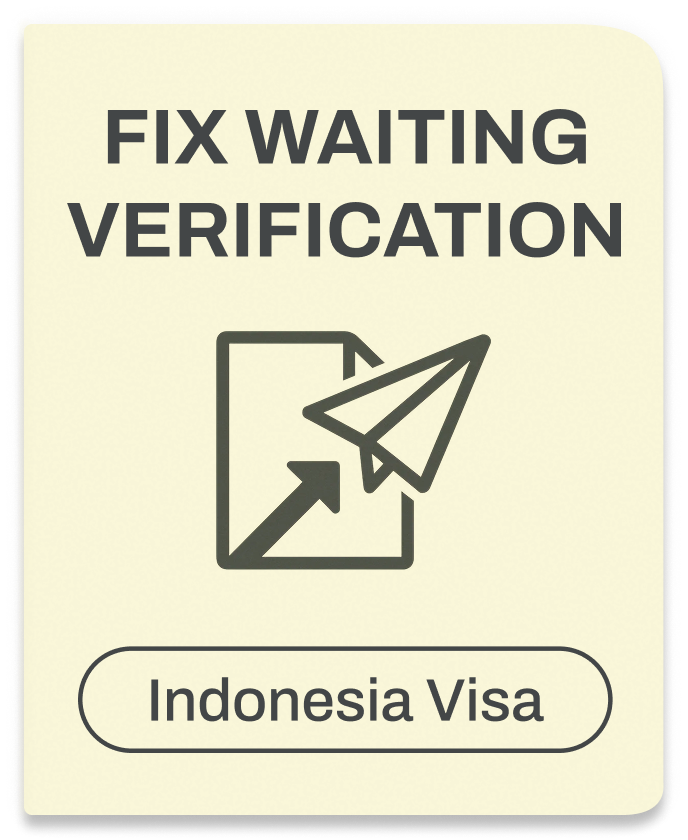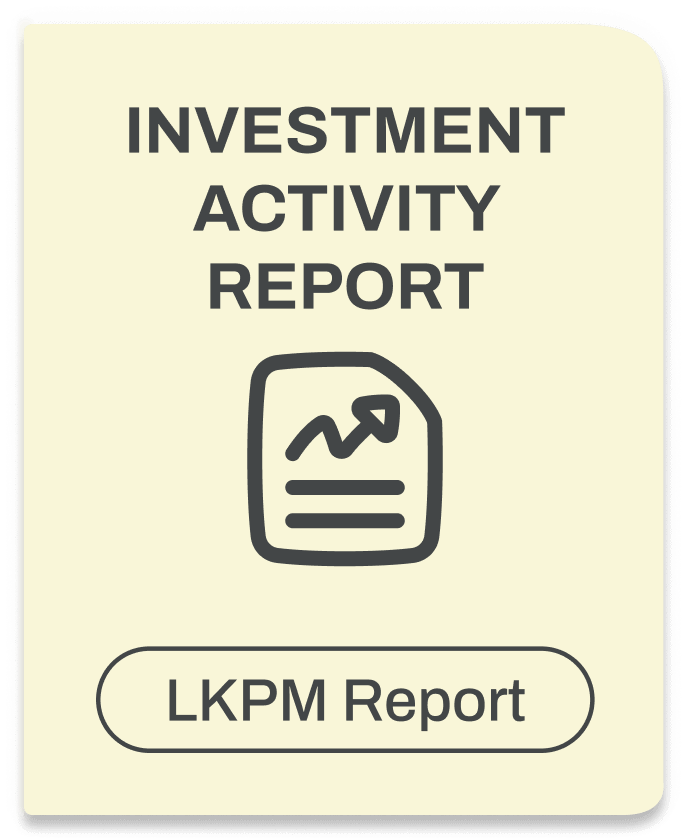Power of Attorney Letter Indonesia Template and Example

Need someone to sign documents in Jakarta while you’re in New York? Want a trusted individual to manage your property while you’re overseas? That’s exactly what a power of attorney does.
Here’s everything you need to know about creating a legal document that actually works in Indonesia (without the usual headaches).
What Is a Power of Attorney, Really?
Think of a power of attorney as your official “you can do this for me” letter. You’re giving someone, your attorney in fact, the legal authority to act on your behalf for specific tasks or business affairs.
In Indonesia, we call it a surat kuasa. It’s not just a casual agreement. It’s a binding legal document under Indonesian law, governed by the Indonesian Civil Code (Articles 1792–1796).
You’re the principal (the person granting authority). The person receiving the power is your agent or attorney in fact. And no, they don’t need to be a lawyer, just someone you trust.
What This Legal Document Can (and Can’t) Do
A power of attorney grants your agent authority to handle matters in your absence. But Indonesian law is pretty careful about scope.
What it covers: Signing contracts, managing investments, handling financial transactions, representing you in court, dealing with property matters, paying bills, and filing documents with government agencies.
What it usually can’t do (without crystal-clear language): Sell your assets, mortgage your property, settle lawsuits on your behalf, or make major life decisions.
Why the limitation? Indonesian law protects you. Even a “general power” only covers management activities, not transfers or big disposals. If you need someone to sell your property, you need a special power of attorney with exact details.
Vague language like “handle all my affairs” might sound comprehensive, but it won’t serve you when you actually need it for something serious.
The Two Types You’ll Actually Use

General Power of Attorney
This covers day-to-day business operations. Think routine financial matters, collecting rent, managing bank accounts, and overseeing your firm’s operations.
The catch: Under Indonesian law, a general power is limited to management acts. It won’t authorize your agent to transfer assets or create obligations beyond ordinary business affairs.
Special Power of Attorney
This is your precision tool. You spell out exactly what your attorney can do, usually one or several specific transactions.
Example: “Authority granted to sell my property located at Jalan Sudirman No. 123, Jakarta, ID number 12345” or “Represent me in Civil Case No. 456/2024 at South Jakarta District Court.”
Banks, property offices, and courts prefer special powers because they’re clear. No guessing, no gray areas.
A note for those familiar with Western systems: You might know about durable power (stays valid if you lose mental capacity), springing power (activates on a trigger), or healthcare proxy documents for making healthcare decisions. These don’t map neatly onto Indonesian practice. If you need something similar, draft it as a special power with explicit conditions, and get a notary public involved.
Who Can Grant Authority (and Who Can Receive It)
To grant a power of attorney, You need mental capacity and legal standing.
- For Indonesians, that means a valid KTP. For foreigners, your passport serves as your ID number.
- For business entities: The authorized representative (usually a director) signs on behalf of the company, per the firm’s articles of association.
- To serve as an attorney in fact: Same requirements, mental capacity and proper identification. Choose someone reliable, because they’ll wield real power over your affairs.
Can your agent authorize someone else? Sometimes. Indonesian law allows substitution unless you forbid it. Most people include a clause limiting this to maintain control.
What Goes Into a Proper Power of Attorney Document
Whether you’re drafting in English, Bahasa Indonesia, or both, your attorney document needs these elements:
- Parties’ complete details: Full names, ID number or passport, addresses for both principal and agent
- Scope of authority granted: Use precise verbs, “to sell,” “to sign,” “to represent,” “to manage”
- Specific references: Property addresses, bank account numbers, court case identifiers
- Validity period: Start and end dates (open-ended authorizations raise red flags)
- Date and place of execution
- Revocation terms: How and when you can cancel
- Substitution limits: Whether your attorney in fact can delegate
- Governing jurisdiction: Indonesian law and Indonesian courts
- Signatures: Yours and your agent’s
- Witness presence: If required
- Notary public certification: For official matters
- Meterai (stamp duty): Currently IDR 10,000
Signing Your POA: From Private Letter to Official Document
You’ve got options for how official your power of attorney letter needs to be.
- Private Agreement: Just you and your agent signing a typed letter. It’s legal for simple, low-stakes personal matters.
- Legalisasi (Signature Certification): A notary public confirms that signatures and dates are genuine. Law No. 2/2014 on notaries covers this in Article 15(2). Banks and government agencies often ask for legalisasi, which gives them confidence without the cost of a full notarial deed.
- Waarmerking (Registration): The notary public registers your already-signed document in their protocol. Another form of authentication that some institutions specifically request.
- Akta Notaris (Notarial Deed): The gold standard. The notary public drafts the document, you sign in their presence, and it becomes official. Courts, property offices, and major financial transactions usually require this level.
When to obtain the full notarial deed? Property sales, company resolutions, significant financial matters, and any court representation. Don’t skimp; the extra cost buys you legal certainty.
The Meterai: Indonesia’s Stamp Duty Quirk
Here’s a uniquely Indonesian requirement: the meterai (stamp duty). As of Law No. 10/2020, it’s IDR 10,000 per legal document.
Powers of attorney, contracts, and official letters all need a meterai. You purchase the physical stamp (looks like postage) from post offices, notary offices, or some convenience stores, and affix it before or during signing.
Where to place it: Near the signatures. Multiple signature pages might need multiple stamps.
Why it matters: A document without proper meterai can be challenged. It’s a small cost for legal protection.
Indonesia Power of Attorney Letter Pdf Example
Using Your POA Across Borders: The Apostille Convention Changes Everything
If you’re dealing with power of attorney matters internationally, this is huge.
The 2022 Game-Changer
Since June 4, 2022, Indonesia has joined the Apostille Convention. If your document originates in another member country, you no longer need Indonesian embassy legalization.
The process: Sign your power of attorney → notarize in your country → obtain an apostille from your country’s designated authority → done. Your legal document is now valid in Indonesia.
Indonesia’s apostilles are issued by the Ministry of Law and Human Rights. You can verify authenticity through their online portal.
If the Other Country Isn’t a Member
You’ll follow several steps: notary public → Ministry of Foreign Affairs → Indonesian embassy or consulate for legalization. It takes longer, but it’s the required path for non-Apostille Convention jurisdictions.
Worth noting: Many guides still say “legalize at the embassy” as the default. That’s outdated for Apostille Convention countries.
Language Requirements: When You Need Translation
Indonesian courts and many agencies want documents in Bahasa Indonesia. If your power of attorney is in English, you’ll usually need a sworn translation.
A certified translator (penerjemah tersumpah) creates an official Indonesian version. Courts, immigration offices, and property registries often insist on this.
Drafting a bilingual document from the start, both English and Bahasa Indonesia, saves translation hassle later.
Special Scenarios: Matching the Document to Your Needs

Property Dealings
Selling or buying property? Your attorney document must be an Akta Notaris with specifics: property location, certificate number, and transaction details. The Land Deed Official (PPAT) won’t proceed without a proper special power.
Business Affairs and Company Matters
Directors often need powers for banking, signing contracts, or representing the firm in legal matters. These should reference the company’s articles and typically need notarization.
Financial Transactions and Banking
Banks are cautious about financial matters. Most require at least legalisasi, many prefer full notarial deeds. Check with your specific institution before drafting.
Court Representation
This absolutely requires a special power with exact case details: case number, court name, parties involved. Many courts have their own form. Your lawyer will guide you.
Healthcare Decisions
Indonesia doesn’t have a Western-style healthcare proxy or medical decision-making authorization framework. If you need someone to make healthcare decisions, work with a lawyer to draft a special power with explicit medical authority. Hospital acceptance varies.
Creating a POA Abroad for Use in Indonesia
Living overseas, but need to grant authority for Indonesian matters? Here’s your path:
Step 1: Sign before a notary public in your country (or at the Indonesian consulate)
Step 2: Obtain an apostille (if your country is an Apostille Convention member) or complete embassy legalization
Step 3: Get a sworn translation to Bahasa Indonesia if needed
Step 4: Use the document in Indonesia
Start with proper notarization. A casual signature won’t have legal standing.
How Long Does Your Authorization Last?
That’s your call. Common options:
- Fixed term: “Valid from January 1, 2025, to December 31, 2025”
- Event-based: “Valid until property sale completion”
- Until revocation: “Valid until I revoke in writing”
Most institutions prefer clear end dates. Open-ended powers make people nervous; they suggest insufficient planning.
Taking Back Control: How to Revoke
Changed your mind? Here’s how to revoke properly under Indonesian law (Articles 1813–1816).
Send a written notice to your attorney in fact. Be clear: “I hereby revoke the power of attorney dated [date].”
Collect all original copies if possible. The more you control, the better.
Notify third parties who might rely on the authorization, banks, agencies, courts. Send formal revocation letters.
Draft a new document if you’re replacing your agent. The new power should explicitly revoke prior grants.
What automatically terminates authority: Death of either person, bankruptcy, legal guardianship of the principal, or mutual agreement.
The tricky part: if third parties don’t know about revocation, they might still accept your former agent’s actions. That’s why notification is crucial.
Red Flags That Kill Your POA’s Effectiveness
Learn from common mistakes.
Using General Power for Asset Transfers
This is the #1 error. Someone drafts a “general power” assuming it covers everything, then tries to use it for property sales. The buyer’s notary rejects it. Why? Because general powers under Indonesian law only cover management, not disposals. Always use a special power for transfers.
Missing Meterai
A power of attorney without the IDR 10,000 stamp can be challenged. Worse: affixing the stamp but dating it incorrectly (should be on or before signing, not after).
“Irrevocable” Claims Without Legal Basis
Some people write “this authorization is irrevocable” for certainty. But Indonesian law rarely supports truly irrevocable grants unless there’s clear mutual interest. Courts can often set these aside. Don’t rely on “irrevocable” language as bulletproof.
No End Date
Open-ended authorizations worry institutions. They suggest carelessness. Set a reasonable term.
Over-Broad Substitution Rights
“My agent can authorize anyone” invites trouble. Limit or prohibit substitution unless absolutely necessary.
English-Only When Bahasa Is Required
Showing up at a government office with English-only documents when they want Bahasa Indonesia wastes everyone’s time. Check requirements first.
Quick Answers to Your Burning Questions
Do I need a notary public?
Not always. For simple personal matters, a private agreement works. But for property, court, or significant financial transactions, you’ll need notarization, minimum legalisasi, often full Akta Notaris.
How long is the authority valid?
As long as you specify. One year is common. You can revoke anytime before the term ends.
Can I authorize two people?
Yes. Specify whether they act “jointly” (must act together) or “severally” (each can act alone). Joint gives control; several gives flexibility.
How do I verify an Indonesian apostille?
Use the Ministry of Law and Human Rights online verification portal. Enter the apostille number to check authenticity.
Can my agent do anything not listed in the document?
No. Indonesian law interprets powers strictly. If it’s not spelled out, your attorney in fact lacks authority. Specificity matters.
What if my POA was signed before 2022, do I need re-apostilling?
No. Documents properly legalized under the old system remain valid. The Apostille Convention just makes new authorizations easier.
Ready to Apply or Extend Your Visa?
Let our visa specialists handle your application.



















